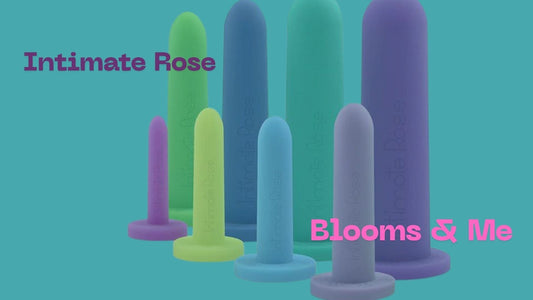Although commonly associated with relieving vaginal dryness during sex, lubricants can be used as a means of improving sexual pleasure for everyone. Essentially, the wetter you are down there the better fun you’ll have during your sexual activities. So what types of lubricants are best for sex? Read on, to learn about the benefits of using lubricants for sex, which one is best for you, and tips on how to use it.
Why Use Lubricant?
No matter your age, gender, or sexual orientation, when it comes to sex, masturbation, or sex toys; lubricants are known to reduce friction and heighten sexual arousal, enjoyment & orgasms. In fact, according to a study published in The Journal of Sexual Medicine involving over 2,000 women, those who used lubricants during intercourse and masturbation reported feeling increased sexual pleasure and being more sexually satisfied than when not using lubricants.
Anytime you and your partner are keen to discover more adventurous sexual positions or anal sex, lubricant is helpful for more comfortable penetration and to keep you feeling safe and aroused throughout your sexual experimentation. Indeed, because the anus does not produce any natural lubrication, it is always advisable to use lubricant for anal sex.
Lubricants are also recommended to reduce discomfort, pain, or chaffing caused by vaginal atrophy or vaginal dryness. Typically linked to a drop in estrogen when new moms are breastfeeding or when women enter the stage of menopause, vaginal dryness can result in painful sex (dyspareunia), fear of penetration (vaginismus), lowered self-confidence, and a loss of intimacy between couples.
That said, not all healthy vaginas secrete the same amount of natural lubrication so many women in their reproductive years find that adding a little extra lube to what their vagina naturally produces gives them a wetter and better feeling down there. Feeling wetter not only eases the friction often experienced during penetrative sex it also improves sexual arousal, which increases blood flow to the vaginal walls, causing the clitoris and vaginal lips to swell, thereby improving sensations and sexual pleasure.
An important factor to bear in mind when contemplating the use of lubricants is that feeling dry down there does not mean you are no longer turned on by your partner. In addition to breastfeeding and menopause, several other situations in life can alter the natural levels of vaginal lubrication including stress, menstrual cycles, and perimenopause, as well as recovering from pelvic surgery, vaginal surgery, or cancer treatment.
Different Types of Personal Lubricants
There are many types of lubricants for sex available in today’s market, however, not all are healthy for the vagina or recommended for sensitive genital skin. The main three types of sexual lubricants are water-based lube, silicone-based lube, and oil-based lube. Many brands also produce fragranced or flavored lubricants as well as warming lubricants that promise to intensify your sexual sensations.
Read on for more understanding of each type of lubricant and why you might choose to use one over another.
Water-Based Lubricant – The All-Rounder
Considered an all-around top performer when it comes to lubricants, water-based lube feels the most similar to the body’s natural lubricant and can be safely used for all kinds of sexual activities including vaginal sex, anal sex, oral sex, and masturbation. Water-based lubricants are also safe to use with all types of condoms, sex toys, and dental dams, as well as kegel weights, pelvic wands, and vaginal dilators made from silicone.
Water-based lubes are easy to clean from the skin, bedsheets, and toys with warm water and soap or detergents. Furthermore, results from the previously-mentioned study published by The Journal of Sexual Medicine found that women using water‐based lubricants experienced less genital irritation after sex than women using silicone-based lubricants.
Perhaps the only drawback is that water-based lube doesn’t last as long as a silicone-based or oil-based lubricant, but that is easily fixed by keeping it close at hand and re-applying when required.
Given the confusion surrounding the use of small amounts of glycerin in water-based lubricants, choosing one with a pH level that correlates with the natural pH of the vagina (3.8 - 4.5) will ensure the vaginal flora is protected and remains balanced.
Silicone-Based Lubricants – Best for Anal Sex
Considered thicker, more slippery, and longer lasting than water-based lube, silicone-based lubes are commonly recommended for anal sex. They are also safe to use for masturbation and vaginal sex with all condoms and other forms of barrier protection. However, silicone-based lubricants cannot be used with silicone sex toys, kegel weights, pelvic wands, or dilators because the reaction of silicone on silicone damages their outer layers.
While many might prefer the thicker viscosity, be aware that silicone-based lubricants are difficult to clean from bedsheets, wooden floors & carpets and they often leave stubborn stains even after cleaning.
As mentioned above, women who use silicone-based lubricants are also known to suffer from more vaginal irritation after use than those using water-based lubes.
Oil-Based Lubricants – Still Popular?
Oil-based lubricants were one of the original types of sexual lubes and although incredibly popular in the past they are no longer recommended for sexual intercourse due to one major drawback. They weaken latex and can cause them to tear, meaning the likelihood of unwanted pregnancy is higher and both partners are more at risk of contracting sexually transmitted infections like chlamydia, gonorrhea, HIV, and trichomoniasis.
Additionally, oil-based products are known to cause vaginal irritation and increase the risk of vaginal infections. For example, during a two-year study of 140 women aged 18-65, researchers confirmed that those using oil-based petroleum jelly as a lubricant experienced an increased risk of getting bacterial vaginosis by 22% and the risk of yeast infections by 32%.
Fragranced, Flavored & Warming Lubricants – Are They Safe?
Any doctor or health practitioner specializing in women’s wellness will confirm that fragranced, flavored, cooling, or warming lubricants should be avoided, especially if you are sensitive to allergies or skin irritants. These types of lubricants contain ingredients that can not only irritate sensitive skin but alter the natural pH balance of the vagina and lead to infections like bacterial vaginosis, yeast infections, and urinary tract infections.
How to Use Lubricants for Sex
Once you’ve chosen the lubricant that sounds good for you, always read the instructions on the label and consider the following tips to get the most out of your sexual experience.
Applying Lubricant for Vaginal Sex
To improve the sensation and enjoyment of vaginal sex, gently apply your lubricant to the vaginal opening or to the penis, sex toy, or finger that is being inserted. Even better, apply lubricant to both.
Applying Lubricant for Masturbation
As with vaginal sex, gently applying lubricant to the vaginal opening and the sex toy or finger being used for masturbation will make penetration more comfortable and improve the sensations of pleasure.
Applying Lubricant for Anal Sex
For more comfortable anal penetration, apply plenty of lubricant to the anus, both externally and internally, and also apply abundantly to what is being inserted. When it comes to anal sex, the more lubricant you use the more comfortable it will feel.
Applying Lubrication for Oral Sex
When using lube for oral sex, apply it to the part of the body that your mouth will come in contact with. Although flavored lubricants might seem like a good idea for oral sex, they are known to irritate the skin and increase the risk of infections, so it is highly advisable to use water-based lube instead.
Can I Use Moisturizer as a Lubricant for Sex?
It's better not to. The purpose of lubricants is to ease penetration, increase sexual pleasure, and help with the use of sex toys, dilators, and kegel weights. Moisturizers, on the other hand, are used to hydrate the skin. Although vaginal moisturizers are specifically designed to hydrate and soothe irritated skin on the outer genitals, many still include parabens that contribute to hormonal fluctuations, pH imbalances, and infections.
If you are looking for a safe, paraben-free vaginal moisturizer choose one that is organically made and free from irritating ingredients. The Natural Vaginal Moisturizer from Intimate Rose is 100% natural, for example, and can be used inside the vagina as well as on the outer genitals
Conclusion
Lubricants for sex are immensely effective in easing penetration, reducing chaffing, and improving sexual pleasure, and they are easy to use for vaginal sex, anal sex, oral sex, and masturbation. Contrary to what most believe, lubricants are not just for women seeking to relieve vaginal dryness, they are highly recommended for increasing arousal and sexual enjoyment in healthy vaginas too.
Have a read above to understand the differences between water, silicone, and oil-based lubricants, what they are ideally used for, and which one sounds right for you.
References
The American College of Obstetricians & Gynecologists – Vaginal Dryness? Here’s What You Need to Know - https://www.acog.org/womens-health/experts-and-stories/the-latest/experiencing-vaginal-dryness-heres-what-you-need-to-know
The Journal of Sexual Medicine - Association of Lubricant Use with Women's Sexual Pleasure, Sexual Satisfaction, and Genital Symptoms - https://www.sciencedirect.com/science/article/abs/pii/S1743609515332562
The American College of Obstetricians & Gynecologists - Barrier Methods of Birth Control – FAQs - https://www.acog.org/womens-health/faqs/barrier-methods-of-birth-control-spermicide-condom-sponge-diaphragm-and-cervical-cap
The National Library of Medicine - Intravaginal practices and risk of bacterial vaginosis and candidiasis infection among a cohort of women in the United States - https://pubmed.ncbi.nlm.nih.gov/23635677/
Health - Are Vaginal Moisturizers Effective? And Do You Need One? - https://www.health.com/condition/sexual-health/moisturize-your-vagina



